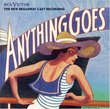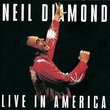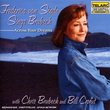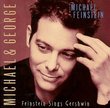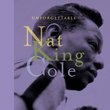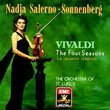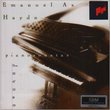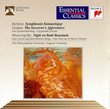| All Artists: Giuseppe Verdi, Tullio Serafin, Orchestra e coro del Teatro alla Scala, Maria Callas, Tito Gobbi, Giuseppe di Stefano, Nicola Zaccaria, Adriana Lazzarini, Giuse Gerbino Title: Verdi: Rigoletto Members Wishing: 0 Total Copies: 0 Label: EMI Classics Release Date: 8/19/1997 Genre: Classical Styles: Opera & Classical Vocal, Historical Periods, Modern, 20th, & 21st Century Number of Discs: 2 SwapaCD Credits: 2 UPCs: 724355632722, 724355632753 |
Search - Giuseppe Verdi, Tullio Serafin, Orchestra e coro del Teatro alla Scala :: Verdi: Rigoletto
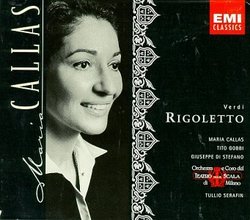 | Giuseppe Verdi, Tullio Serafin, Orchestra e coro del Teatro alla Scala Verdi: Rigoletto Genre: Classical
Nobody steals the spotlight when Maria Callas is onstage, but Tito Gobbi never lets us forget that this show is called Rigoletto, not Gilda. Neither singer has one of the century's prettiest voices; both have dramatic ... more » |
Larger Image |
CD DetailsSynopsis
Amazon.com Nobody steals the spotlight when Maria Callas is onstage, but Tito Gobbi never lets us forget that this show is called Rigoletto, not Gilda. Neither singer has one of the century's prettiest voices; both have dramatic presence, impact, and subtlety--based as much on their control of verbal nuance as on musicianship--that make their characters three-dimensional, the story meaningful, the emotions real, varied, and intense. His role is bigger and more complex than hers is. He is almost constantly onstage, and his music runs the whole gamut from fatherly tenderness, to regret at a life gone wrong, to explosive rage. Sparks fly when they sing together, and Tullio Serafin conducts with an exemplary grasp of the opera and a detailed knowledge of his cast's capabilities. --Joe McLellan Similarly Requested CDs
|
CD ReviewsA simply marvelous recording!!!! Rod Tierman | 10/27/1999 (5 out of 5 stars) "This has GOT to be the perfect cast for Rigoletto. Callas, Di Stefano, and Gobbi all in their wonderful primes. La Divina sounds so young, fresh, and innocent here (I don't know where someone got that they thought she sounded like a 70 year old lady!!). I have usually found Callas' diction quite exceptional, unlike Dame Joan, and that is once again evident on this recording. Her coloratura soaring tones sound efortless here! And Gobbi!! What incredible voice he is in here!! I agree with our friend from Milano when he states that Gobbi has to be second only to Ruffo for Italian baritones. Di Stefano had to be the perfect voice for the Duke (along with Nicolai Gedda, the late Alfredo Kraus, and Mario Lanza, even though we were never fortunate enough for Lanza to perform the entire role). It must have been this type of voice Verdi had in mind when he wrote the Duke of Mantua. Di Stefano shows a neccessary abandon and rakeishness that so many other Tenors lack on recordings. This recording has a real Italian edge to it. Not plastic and pristine sounding like most modern recordings of this role. Serafin's conducting is flawless!!!! Quite possibly one of the greatest recordings of all time. A must have!!!" Questa o quella? Steve Bell | Manchester UK | 03/19/2002 (4 out of 5 stars) "This one? That one? Which 'Rigoletto'? One review sites power of high notes with Bastianini, another grumbles about the sound, a third hates all the principals. Callas inspired both love and contempt and this perform won't help.To the devoted fan they will hear her incredible artistry, to her detractors she will seem ungainly and far from the virginal creature Verdi intended. But as is usual with the great Diva..if you have ears to hear, then hear her fall from innocence into guilt and shame and finally feel her inspired to self sacrifice. Wonderful. There is much, much more to the role of Rigoletto than a rich voice and a brilliant top.Gobbi's vocal colouring is staggeringly versatile. Only possible criticism is that he may wear his heart too much on his sleeve..and if you really believe that then go to Merrill or Bastianini and good luck to you. Gobbi is superb. Di Stefano? Listen to his 'Questa o Quella' and you know the Duke inside out. Dangerous, predatory, shallow. La Donna goes less well with an ungainly cadenza and a flatconclusion. Forgivable after his glorious tones in the love duet and elswhere. The man has voice, 'face' and glorious tone. Serafin loved this score though the quartet seems to slow dangerously at one point. Only 4 stars? Well its not perfect! It's simply the best!" Outstanding. My favorite version of Rigoletto. Marmez1@aol.com | Los Angeles, CA USA | 03/29/1999 (5 out of 5 stars) "Amazon's reviewer got it right. Callas is a marvelous Gilda, but she is not the only star of this performance. Gobbi is a superb Rigoletto. His musicianship is outstanding, and his interpretation is both strong and sensitive. Serafin keeps the tension going, providing us with a crackling interpretation. By the end the listener is drained emotionally. There are other good versions. For those looking for an excellent performance in more modern sound, I recommend the Guilini with Domingo and Cotrubas. For those for whom an older sound does not detract from a superior performance, this is the one to get.However, as I often say, in the end you will probably get both if you love this opera as much as I do."
|

 Track Listings (19) - Disc #1
Track Listings (19) - Disc #1![Vivaldi's Ring of Mystery [With CD]](https://nationalbookswap.com/cd//m/30/0730/80730.jpg)
